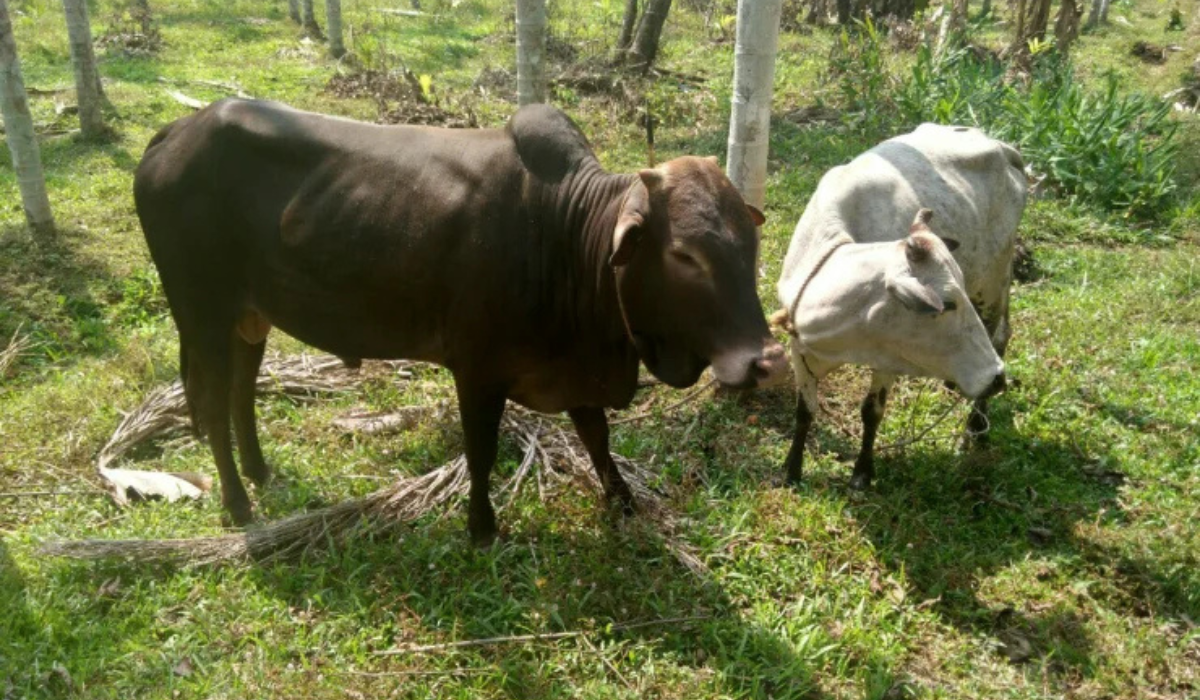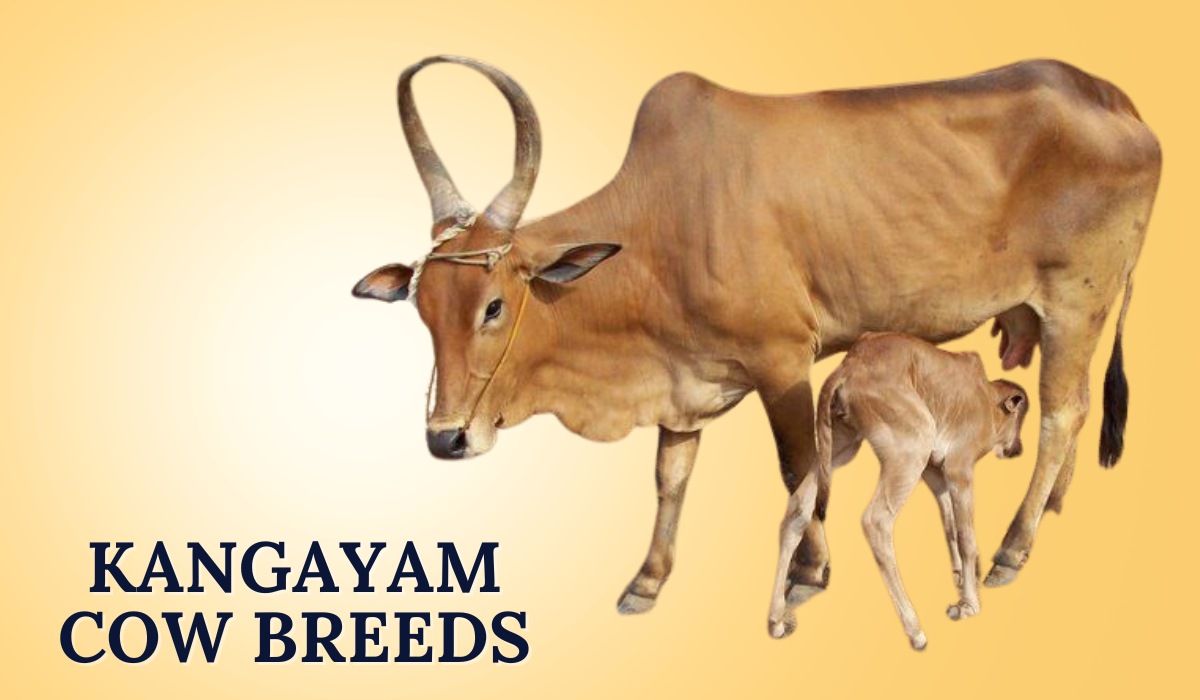The Malnad Gidda Cow Breeds, an indigenous treasure of India, hails from the Western Ghats, specifically the Malnad region of Karnataka. Renowned for its hardiness, small size, and ability to adapt to diverse climatic conditions, the Malnad Gidda breed has been a cornerstone of sustainable farming practices for generations. Unlike high-maintenance, high-yield unfamiliar breeds, the Malnad Gidda is a low-cost, resilient breed, making it well-suited to small-scale and eco-friendly farming. The name “Gidda” itself means “dwarf,” aptly describing the breed’s compact stature, which makes it ideal for farmers in the hilly terrain of the Western Ghats.
A notable feature of the Malnad Gidda Cow Breeds is its disease resistance, a trait that allows it to thrive without intensive healthcare or specialized diets. This diet contributes to the high nutrient value of their milk, a prized ingredient in traditional diets of the region. Due to its organic milk, low maintenance costs, and environmental adaptability, the Malnad Gidda Cow Breeds has become increasingly popular among farmers looking for sustainable livestock options.
Physical Characteristics of the Malnad Gidda Cow
Malnad Gidda Cow Breeds are small, standing around 90-110 cm in height and weighing between 150-200 kg. Their compact size makes them easy to manage, particularly in hilly and densely forested areas where larger breeds might struggle. The Cow Breeds In India coat varies in color, from black to light brown, with some cows displaying white patches. This variation adds to the breed’s charm, as it reflects a natural adaptation to local conditions. Their small size and agility also help them move easily through the forests, allowing them to forage naturally without disturbing the environment.
The breed has a sturdy and strong bone structure, which allows it to carry out tasks such as plowing and carrying loads in addition to milk production. Though not a high-yield breed in terms of milk production, Malnad Gidda milk is rich in A2 protein, making it highly nutritious and easier to digest than milk from breeds with A1 protein. This nutritional quality is increasingly valued as awareness grows regarding the health benefits of A2 milk, which is often associated with improved digestion and reduced inflammation.
Milk Production and Nutritional Benefits
While the Malnad Gidda Cow Breeds is not known for high milk production, its milk quality is exceptional. Typically, these cows yield between 1 to 3 liters of milk per day, which is relatively low compared to other breeds. However, the milk’s A2 protein content makes it desirable among health-conscious consumers who seek natural and easily digestible dairy products. The milk has a higher fat content, contributing to its creamy texture and distinct taste, which is especially valued in traditional Indian cuisines.
This milk is also packed with essential nutrients, including calcium, phosphorus, and a variety of vitamins, making it a wholesome addition to diets. The high-fat content makes it an excellent base for products like ghee, curd, and buttermilk. Furthermore, because these Cow Breeds In India graze on diverse vegetation, the milk is naturally enriched with bioactive compounds and antioxidants from forest plants. This nutrient profile is a key reason for the rising demand for Malnad Gidda milk in niche markets, particularly among those seeking organic and sustainably produced dairy.
Role of Malnad Gidda in Sustainable Farming
Malnad Gidda Cow Breeds are integral to traditional, low-input farming systems, which rely on grazing and minimal intervention. These cows contribute to a closed-loop farming system, where their manure serves as a natural fertilizer, enhancing soil fertility and promoting crop health without chemical additives. As a result, the Malnad Gidda supports sustainable agriculture by helping to maintain soil quality and reduce dependency on external inputs, which is critical in regions where chemical fertilizers may disrupt ecological balance.
In addition, the breed’s efficient grazing habits prevent overgrazing and allow for natural vegetation regeneration, preserving the ecological stability of the forests in the Western Ghats. This not only benefits the local flora but also supports the biodiversity of the region, which is one of the richest in India. The Malnad Gidda Cow Breeds contributions to natural farming systems make it an environmentally friendly choice, aligning with the growing movement toward sustainable and regenerative agriculture practices.
Economic Viability of Malnad Gidda Cows
For small-scale farmers, the Malnad Gidda Cow Breeds is an economically viable choice due to its low maintenance requirements. Since these cows can graze on natural vegetation without needing special feeds, the cost of upkeep is minimal. In comparison to high-yield breeds that require supplementary feeds and healthcare expenses, Malnad Gidda cows thrive on basic forage, reducing the overall financial burden on farmers. The hardy nature of this breed also lowers healthcare costs, as they are naturally resistant to common cattle diseases.
Moreover, the market for A2 milk is growing in urban areas, where consumers are increasingly willing to pay a premium for organic and easily digestible milk products. Farmers who raise Malnad Gidda Cow Breeds can tap into this demand, providing a source of steady income without the pressure of high input costs. For farmers in remote or economically marginalized regions, this breed offers a sustainable livelihood, supporting not only their economic needs but also preserving cultural traditions of animal husbandry.
Malnad Gidda’s Role in Biodiversity Conservation
As a native breed, the Malnad Gidda is a living representation of India’s rich biodiversity. By preserving this breed, farmers help maintain genetic diversity in cattle, which is essential for resilience against diseases and changing climate conditions. Native breeds like Malnad Gidda carry genes that make them adaptable to local environments, which is critical in the face of environmental challenges such as extreme weather and disease outbreaks.
The conservation of the Malnad Gidda Cow Breeds has become a priority for organizations working to protect indigenous livestock. Farmers and NGOs in Karnataka have come together to promote awareness about the breed’s importance and the need to preserve it as part of India’s agricultural heritage. By supporting Malnad Gidda breeding programs, these organizations help ensure that future generations will continue to benefit from the breed’s unique qualities and contributions to sustainable agriculture.
Health Benefits of Malnad Gidda Milk
Malnad Gidda milk offers numerous health benefits, owing to its A2 protein and high-fat content. For those with mild lactose intolerance, A2 milk may be a better option, as it is less likely to cause digestive issues. The high levels of calcium and other essential nutrients in Malnad Gidda milk support bone health, muscle function, and overall growth, making it ideal for children and adults alike.
In addition, the milk’s creamy texture and rich flavor make it ideal for traditional preparations, such as yogurt, which is a staple in Indian diets. The antioxidants present in the milk contribute to overall health and help reduce inflammation in the body, making it a great choice for people seeking natural and nutrient-dense dairy options. With its health-boosting properties and organic origin, Malnad Gidda milk has earned a place in modern health-conscious diets.
Conclusion: The Future of Malnad Gidda in Indian Dairy Farming
The Malnad Gidda cow breeds embodies the principles of sustainable farming and traditional livestock management. Its ability to thrive in natural environments, contribute to biodiversity, and offer healthful milk makes it a valuable asset for the future of Indian agriculture. As consumers become more aware of the benefits of organic and ethically sourced dairy, breeds like Malnad Gidda are likely to see a resurgence in demand. Farmers in the Western Ghats and beyond are embracing this breed not only as a means of livelihood but also as a way to preserve India’s agricultural heritage.
In the face of climate change and the environmental impact of intensive farming, the Malnad Gidda cow represents a sustainable alternative. By supporting and promoting native breeds, India can safeguard its biodiversity and support rural economies. The Malnad Gidda Cow Breeds stands as a symbol of resilience, heritage, and health—qualities that make it a valuable part of India’s dairy sector and a model for sustainable farming practices.



